As soon as you arrive in Japan, you’re in for some major expenses, like renting a house, buying new furniture and daily necessities, or taking care of all the necessary paperwork. If you don’t have a steady source of income because you don’t have a job lined up or are a language student with no time for a part-time job, then you’ll want to start minimizing your expenses as quickly as possible. That’s why, in this article, we’ll discuss ways of shopping smart and saving money at Japanese stores.
How to Save Money on Food

Everyone has to eat so you will have to spend money on food, but because it is a daily expense, a lot of people try to save as much money on it as possible. We will now discuss the best ways to do that.
1) Buy Discounted Supermarket Products Right Before the Store Closes
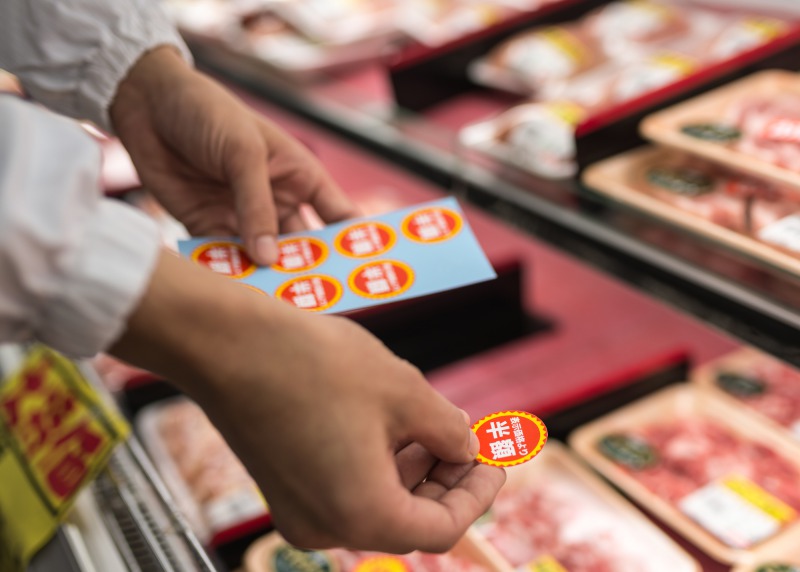
Most supermarkets heavily discount their products about 30-60 minutes before they close. If you get there at the right time, you can get 30-50% off on unsold fresh products like meat or fish, or read-to-eat meals like karaage fried chicken, croquettes, and nimono (stewed dishes). Similarly, food sections located in basements of department stores usually offer great deals shortly before closing, like selling three products for 1,000 yen.
You can also find discounts just after the store opens by looking for products that are about to expire, which can be on clearance sale. Suffice it to say, shopping at supermarkets shortly before they close or just after they open can save you a lot of money. However, because all of it is so cheap, you run the risk of buying too much and having to throw it out later, so please be careful and only purchase what you need.
You can even find limited-time bargains at convenience stores, like all the onigiri rice balls going for 100 yen each, or 50 yen off all noodle dishes. Some stores also give discounts if you buy both an onigiri and a drink.
2) Buy Store-Brand Products
A thing you see a lot in supermarkets and convenience stores is the PB designation. It stands for “Private Brand,” the Japanese term for store-brand. It’s when one manufacturer produces products to be sold under a specific retailer’s brand. It saves stores a lot of money on advertising and production costs, so even though the product is exactly the same as the NB (“National Brand”), it is often much cheaper. These days, a lot of major food manufacturers are actively developing store-brand products, which has made their quality on par with NB goods. So if you’re looking to save money, store-brand/PB goods are the way to go.
3) Shop at Stores That Offer Membership Services
Some Japanese supermarkets offer their own membership services. If you sign up for them, you get a membership card and start collecting points with each purchase you make. You will also be eligible for special member discounts on certain products. The points can later be used to pay for your shopping, so if a supermarket that you frequent offers membership services, you should definitely sign up for them!
4) Go to Wholesale Supermarkets
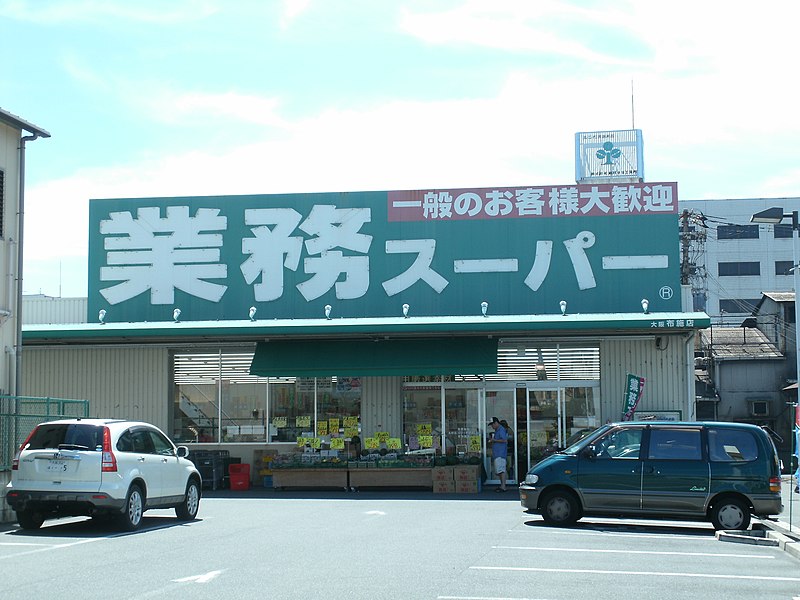
For things like condiments and other items that keep for a long time, you should visit a wholesale supermarket (gyomu-yo supa, 業務用スーパー), which is a store that sells bulk ingredients to restaurants and other retailers. Because they sell in large quantities, the base price for their products is much lower than at a regular supermarket. Of course, if you don’t use condiments that much, the ones you get at wholesale supermarkets will probably expire before you use them up. But if they make frequent appearances in your kitchen, it would make sense to buy them in bulk. You can also buy a smaller bottle and keep refilling it with what you bought at the store to keep your kitchen neat and tidy. Additionally, wholesale supermarkets sell things like pre-prepared meat, vegetables, and bulk boil-in-the-bag food, so if you don’t have a lot of time to cook, you can stock up on plenty of dishes at these stores.
5) Visit Drugstores
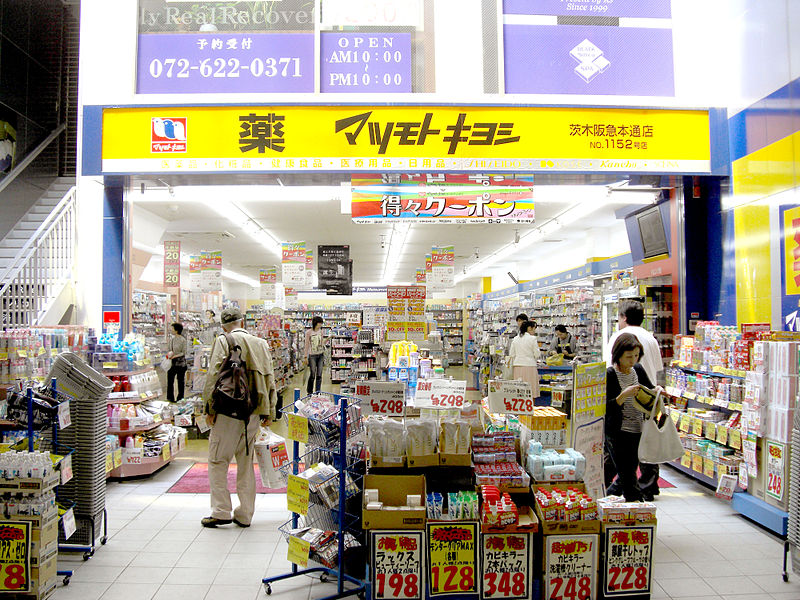
Besides daily necessities, Japanese drugstores also sell inexpensive candy and snacks. More importantly, they sell things like detergent, shampoo, conditioner, and other products in big packs as well as in refillable containers, so if you buy one of each, you’ll be reducing your garbage output and helping out the environment.
How to Save Money on Clothing

Just after you arrive in Japan, you’re still lacking in lifestyle necessities and will be looking to buy some clothes and fill out your wardrobe. But clothes are actually quite expensive in Japan, and if you pay regular price for them, your savings will take a hit. That’s why we will now discuss ways of saving money on clothing.
1) Buy Clothes During Bargain Season
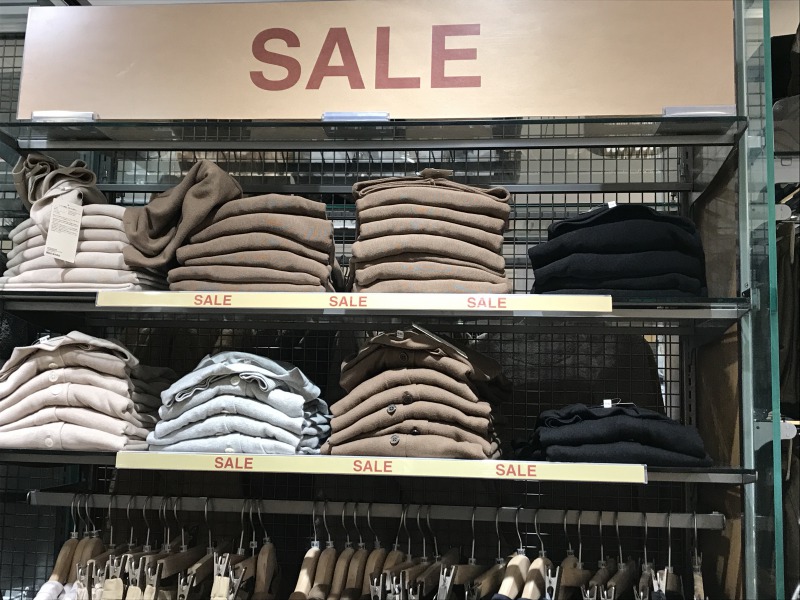
When seasons change, a lot of shops organize bargain sales where you can get clothing for 30-50% off. Some loss-leader products may even be discounted as much as 70%. Most Japanese bargain sales occur in the summer and winter. Their most fashionable products tend to sell out fast, so you should get there early. Some stores also offer membership services that entitle you to bargain sale prices shortly before the actual sale begins. They may even offer secret bargain prices, so if your favorite brand store offers such membership services, you should definitely sign up for them.
Additionally, shopping centers like LUMINE or MARUI have their own membership services that occasionally entitle members to a 10% discount.
2) Buy Things in Bundles
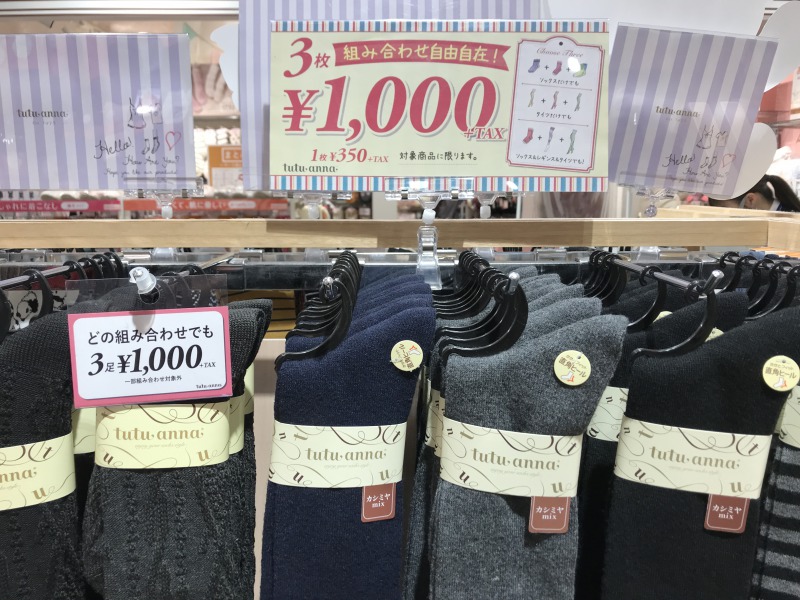
It’s much cheaper to buy socks, underwear, or shirts in bundles instead of individually, especially with socks and underwear since they are expendable goods.
3) Buy End-of-Year “Fukubukuro” Grab Bags

At the end of the year, department stores and other retailers sell so-called “fukubukuro” grab bags that include items worth more than the price of the bag. If you’re lucky, you can get things priced several times more than the bag. But be careful, because you never know what’s inside the bag, so you may end up getting things you don’t need or clothes not in your size. It is possible to lose out on a fukubukuro purchase. However, in recent years, some stores have started advertising the exact contents of their grab bags, selling “see-through” fukubukuro, or even allowing you to compose your own bag out of selected items. Still, just because they’re a bargain doesn’t mean it’s wise to splurge and buy several bags at once. Be careful not to overspend on these!
4) Shop at Outlet Stores

All throughout Japan, you’ll find large-scale outlet stores operated by major retailers, selling discounted B-grade merchandise that wasn’t up to their regular corporate standards or items from last season. Suburban outlet malls house many fashion brands and makers. If you’re looking to buy affordable brand-name goods, outlet stores are the place to go to.
Summary
You can save a lot of money by buying food at the right time or taking advantage of supermarket membership services. Also, you won’t spend as much if you think about what you need, make a list before you go out shopping, and then stick to it. As for clothes, they tend to go on sale when the seasons change, and you can also get them cheaper if you buy them in bundles or at outlet stores.
If you want to give feedback on any of our articles, you have an idea that you’d really like to see come to life, or you just have a question on Japan, hit us up on our Facebook!
The information in this article is accurate at the time of publication.

